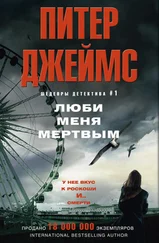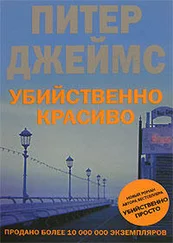‘Secondly, there isn’t anyone in the world who could have predicted this price rise. It’s unbelievable, illogical.’
‘A word of warning, Monty,’ said the Viscomte. ‘My friend Jimmy thinks you may be behind this, and he does not like to be double-crossed.’
‘What are you saying?’ Elleck’s voice rose several octaves.
‘Jimmy Culundis thinks you may have something to do with this rise; he is not going to be pleased to find our syndicate has missed out on it.’
‘I can’t help what your nasty little Greek poofter thinks — he’ll have to sit on his little greased bottom and wait for the results.’
‘I’m just warning you, as a friend,’ said Lasserre.
Elleck suddenly realized that the tone of Lasserre’s voice had become chilling. ‘What exactly are you warning me?’
‘I am warning you as a friend,’ said Lasserre, ‘that is all. I understand the world of money, of commodities. Jimmy Culundis has a more — how do you say — simple outlook on business. He provides a service and he gets paid for it. He does understand that you cannot buy gold today because it may go down tomorrow. He is a man with much power and he is a very ruthless man indeed. I am warning you my friend, that if he feels — how you say — that he is going to get screwed — in a way that he does not consider pleasant — he is a man who will get revenge.’
‘Do I understand exactly what you are saying, Claude?’
‘I think so, my friend. Have a good weekend.’ Lasserre hung up.
Elleck sat and stared at the humming receiver, then he replaced it on the hook. He tapped a button on his Reuter terminal. Gold had risen yet another $4. Thank God, he thought, that it was the weekend. Perhaps the investment world would come to its senses over the next couple of days. He sincerely hoped so. For the first time since his days in Auschwitz he felt scared — very scared.
Baenhaker looked at his watch: it was two minutes to five, Friday afternoon. He rubbed his eyes, and stacked up the last of the pile of micro-fiches that had been developed and printed from the hundreds of photographs he had taken on Wednesday night, in the Globalex offices.
He wasn’t pleased that he’d killed the security guard, but it didn’t bother him; as far as he was concerned, he had had no option. The man had crept up on him while he was working on the computer, trying to get an account list printout, and in their ensuing struggle, had made it clear that he recognized him: ‘ ’Ere,’ he had said, ‘you were ’ere this morning — came to see Mr Rocq.’
He dialled Ephraim’s number in Tel Aviv. It was answered after less than half a ring. ‘Hallo.’
‘This is Marvin here.’ Marvin was the code Baenhaker was assigned to identify himself by.
‘Hallo Marvin.’
‘I have some information, but not everything. Lasserre is a client of Globalex — both a personal client and corporate. The total account is some £25 million sterling; it is fairly widely spread over a range of commodities — mainly soft, but some metals.’ Baenhaker was pleased he had now grasped the difference, and hoped Ephraim was impressed. He paused and then went on. ‘I don’t know why Elleck went to dinner, but it may have something to do with a syndicate that has been formed between Lasserre, Jimmy Culundis and Sir Monty Elleck, which is called, as far as I can ascertain, Goldilocks.’
‘Goldilocks? Isn’t that a children’s story?’
‘Yes — the name is obviously supposed to be humorous. This syndicate is buying £1,000 million worth of gold. They are doing it very discreetly, and are using a broker within Globalex to buy the gold in small quantities — a few bars at a time in a large number of different markets, and through a variety of dealers, banks and brokerage houses.’ Baenhaker stopped for a moment. ‘That’s about all I know, sir.’
There was a long silence down the phone. Then Ephraim spoke: ‘You have done well, Marvin, very well. Do you know the identity of the broker?’
‘Yes, I do. Alex Rocq.’
There was another long silence. ‘I’d like you to keep a close eye on Rocq and Elleck — understand?’ said Ephraim.
‘Yes, Sir,’ he said.
‘Good,’ said Ephraim. ‘Then I’ll wait to hear from you. Time is of the essence.’
‘I understand, Sir. Goodbye.’
Baenhaker hung up the phone, and then sat back in his seat. He rubbed his eyes again, stretched his arms, then laid his head right back. Ephraim had, by the words ‘close eye’ instructed him to put Rocq and Elleck under 24-hour surveillance. There were three surveillance teams available to him. He would put them all onto Elleck. Rocq, he decided, he would watch himself.
When he came up from the basement, the building was empty, apart from the Italian cleaning woman hoovering an office. He walked out of the front door, into the balmy evening heat. The Friday evening exodus out of the City had begun, and he watched the cars in the jam down Lower Thames Street with envy. They were going to their summer weekends, to their cottages and mansions, to their wives, girlfriends, lovers, boyfriends — companionship. Tonight was an evening for Pimms in the countryside, for sitting at a table with a beautiful girl and a bottle of wine, and a candle flickering.
He thought about evenings in Israel when he was a child, hot balmy evenings like this, and he felt nostalgic. London was a grand city, a great city; in spite of the bad that was happening in England, London still retained its dignity. But to Baenhaker, after five years here, the doors were still as closed as the day he had first stepped off the aeroplane at Heathrow. Twenty months ago, those doors had opened for the first time, in the form of Amanda. He had someone to share the city with, to share all the experiences of his life, at least the ones that he could talk about. Now he was back in the loneliness, hoping that maybe, one day, a single unmarried secretary that he fancied might join Eisenbar-Goldschmidt or, alternatively, that somewhere, as in that gutted building where he had first met Amanda, there might be someone else that he could find to love, who would also love him. But so far, no one.
As he walked down the street, he decided to do something he rarely did; he went into a pub, and had a pint of bitter. He stood at the counter, looking around. The barmaid was about forty, not bad-looking, but not the girl he dreamed of. The rest of the bar was full of men, mostly in suits that were too thick for the heat.
He downed the pint slowly and then left, feeling a little drunk. He went down the steps of Cannon Street tube station, bought his ticket and stood on the platform; opposite him, a long slender leg, wrapped in a sensuous Pretty Polly stocking, slunk out from a poster. She was the girl for the discriminating man, the poster told him. He was discriminating, but evidently someone must have got to her first.
He put his hands in his pockets and stared at the dark tunnel; there was no sign of a train. A young plump negress stood near him, clutching a carrier bag; two men, extremely drunk, in short-sleeve shirts, were having an argument about football players. Suddenly, he didn’t want to be here any more; he wanted to be back in Israel, on a kibbutz, in a large family of his own people. He was tired of this existence, tired of the sacrifice. Someone had to do it, he knew, but he didn’t feel any longer that it should be himself. He wanted the lushness, the dryness, the heat, the wind, the smell of fruit; he wanted to go out and dig up fields under a blazing sun, not to be standing here on this platform which smelt of damp sacks and old socks.
The train arrived, the doors opened, and he sat down. They slid shut again, and he looked around the carriage, looked at ten faces numbed into silence by something — perhaps the same shyness, perhaps the same apathy, perhaps the same boredom. He looked at them aloof, for he was a big person, an important person, and they were nothing. He had been instructed to kill men for his country; what had they been instructed? To bring home chicken dinners from Colonel Sanders?
Читать дальше











![Питер Джеймс - Искушение [litres]](/books/423638/piter-dzhejms-iskushenie-litres-thumb.webp)
![Питер Джеймс - Wish You Were Dead [story]](/books/430350/piter-dzhejms-wish-you-were-dead-story-thumb.webp)